

This policy brief is based on “Does offshoring shape labor market imperfections? A comparative analysis of Belgian and Dutch firms”, National Bank of Belgium WP 425, 2022.
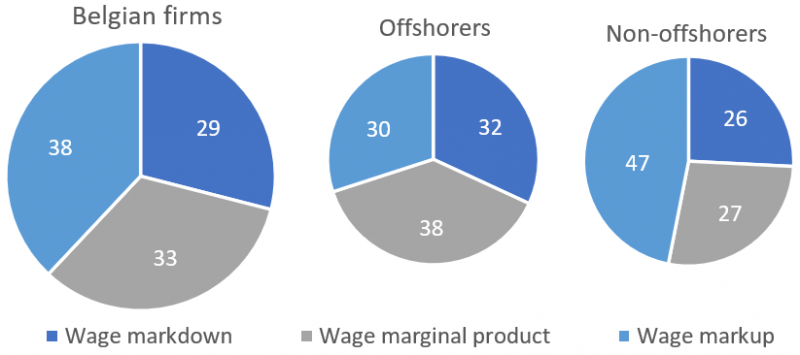
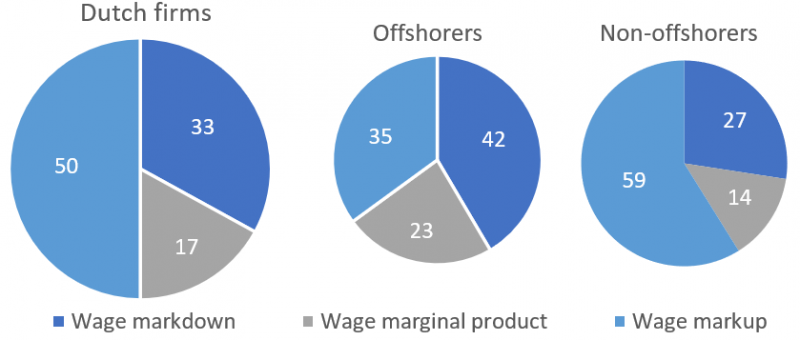
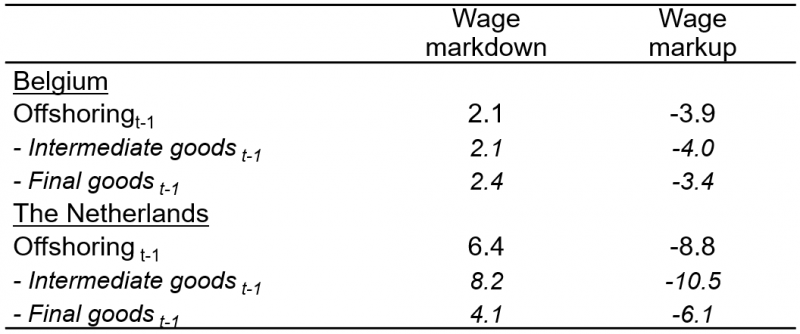
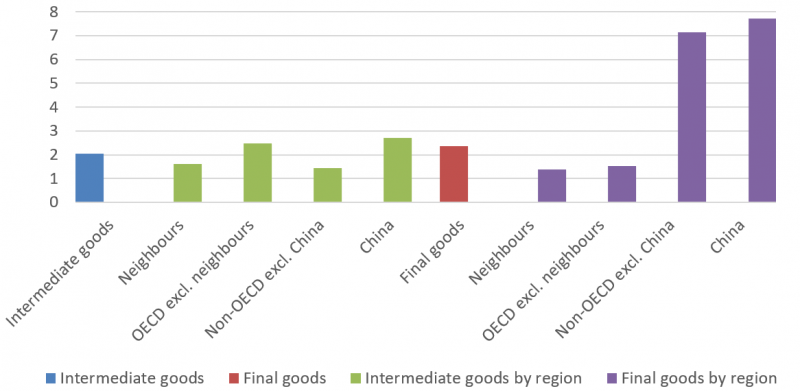
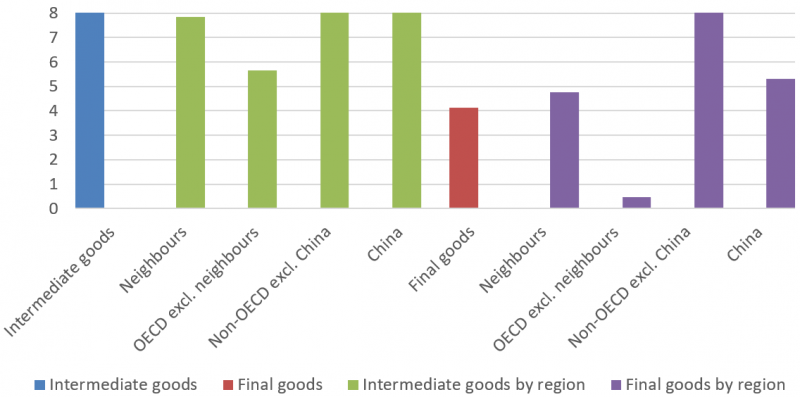
Dobbelaere, S. and Mairesse, J. (2013). “Panel data estimates of the production function and product and labor market imperfections”. Journal of Applied Econometrics, 28(1):1-46.
The estimated impact of the offshoring of intermediate goods imported from China on the probability of wage markdowns is not significant for Belgium.